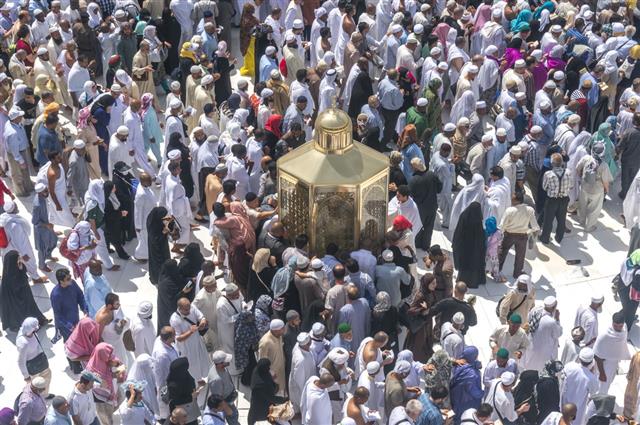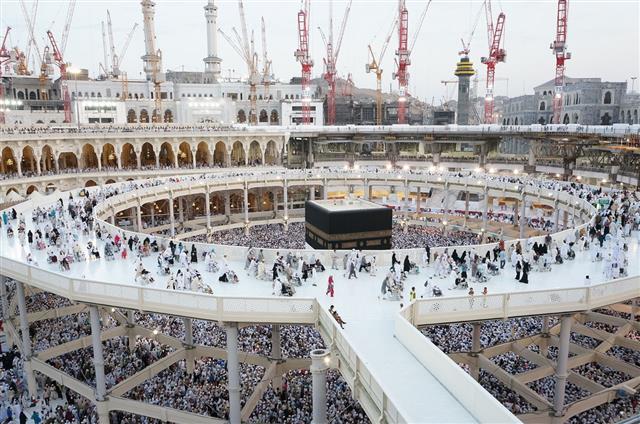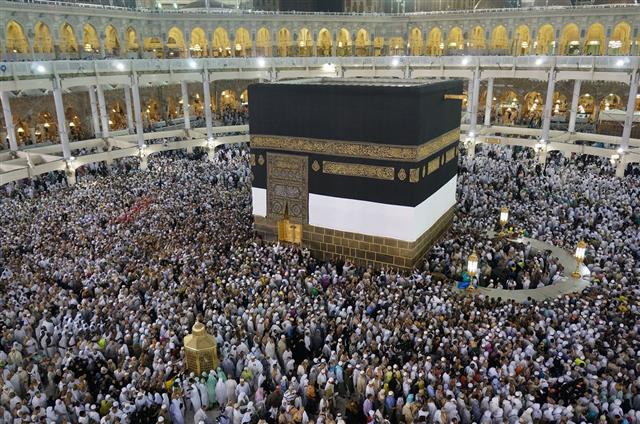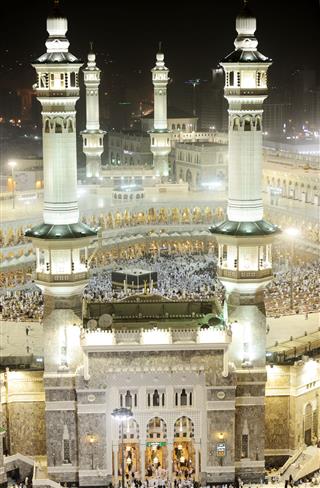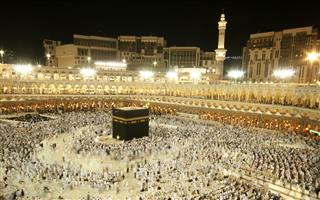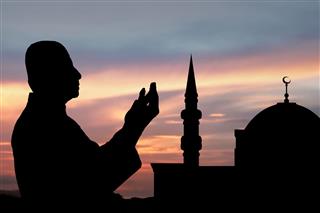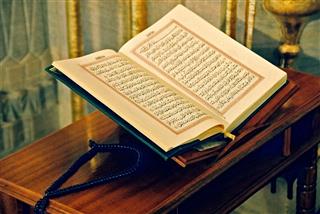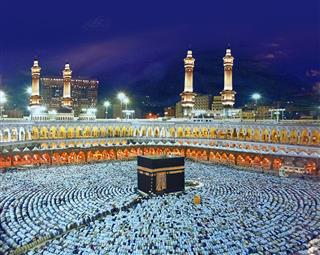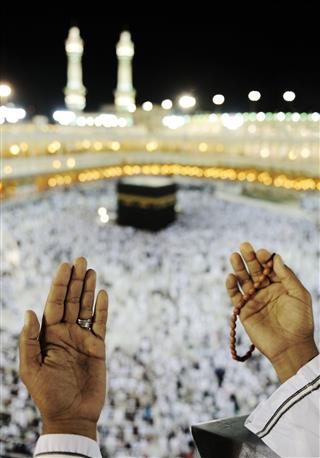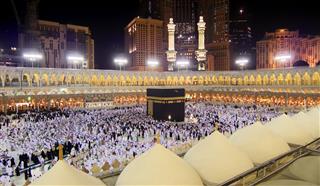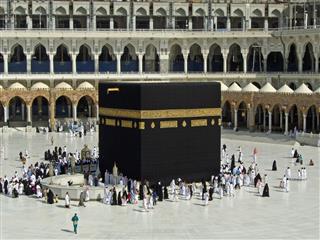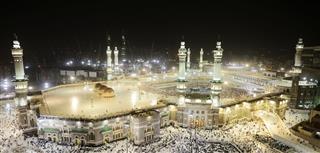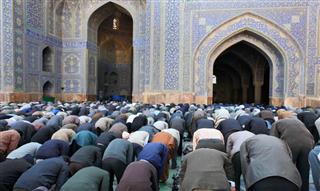
Muhammad is well-known all over the world as the founder of one of the major religions in the modern world, Islam. Read on to find out more about the life of the Prophet.
Muhammad (Abū al-Qāsim Muḥammad ibn ʿAbd Allāh ibn ʿAbd al-Muṭṭalib ibn Hāshim) is revered by Muslims as a Prophet of God. He claimed to have received ‘revelations’ (ayah) from God, and wrote the Quran, the sacred scripture of Islam, by structuring these revelations together.
Although followers of other religions don’t necessarily consider him a prophet, he is still highly regarded as the founder of Islam. In fact, in his early days he was seen as a ‘false prophet’ by the prevalent religious powers, since his teachings, which advocated monotheism, were against the norms of the Arab society of the time. However, the West’s perception about him changed for the better in the medieval ages.
Although Western scholars are undecided and usually skeptic about the authenticity of Muhammad’s visions, it can’t be denied that Muhammad was an inspirational leader who formed one of the major religions in the world, and united Arabia with his Islamic army. From his primary military base in Medina, Muhammad first captured his hometown, Mecca, the most important religious city in Islam. From then on, the expansion of his Islamic empire was unstoppable and, to some degree, inevitable.
Here are some facts about one of the most influential men in the history of humankind.
The adjoining image is a representation of Muhammad’s name. According to the hadith, Muslims are forbidden to create visual depictions of figures.
Timeline
Muhammad was born in Mecca around 570 AD (568 and 569 AD are also possible). He was born into the politically prominent Banu Hashim clan.
Abdullah, his father, died before he was born. His mother, Amina, died when he was six, leaving Muhammad orphaned.
Although this is doubted by modern scholars, he is believed to have been raised by a desert-dwelling foster family, since desert life was considered to be better for infants.
After his parents’ death, Muhammad’s paternal grandfather raised him. When he died, Muhammad’s uncle, Abu Talib, took care of Muhammad. Abu Talib was a fierce supporter of Muhammad’s philosophies and was a very important part of his life.
Muhammad used to accompany his uncle’s caravans from a young age, and soon became a merchant.
On one of these caravan routes, Muhammad and his uncle came across a Christian hermit, who prophesied the glorious future of Muhammad.
He earned a name as a faithful man, which gave him the nicknames al-Amin and al-Sadiq, meaning ‘faithful’ and ‘truthful’ respectively. The reputation as a fair-minded, honest man also invited a marriage proposal in 595 AD (when Muhammad was about 25-26) from a 40-year old widow, Khadija. Muhammad accepted this proposal, and the marriage was, by all accounts, a happy one.
Muhammad reported to have had his first revelation at the age of 40, while meditating alone on Mount Hira. He was illiterate, and it is believed that the archangel Gabriel (Jibril in Islam) appeared to him and commanded him to memorize a verse. The verse was one of praise for the Lord and declared that man was created out of congealed blood. He was told by the angel that he was a chosen messenger of God. When he returned home, he yearned for the fulfillment of his spiritual quest. His wife Khadijah, cousin Ali ibn Abi Talib, friend Abu Bakr, and Zaid, his adopted son were his first followers.
Muhammad’s teachings were ridiculed and ignored at first in his hometown of Mecca. However, as his influence began to grow, local tribesmen started to openly oppose him, especially as his teachings went against the prevalent tradition of polytheism and idol worship. Fellow merchants tried to bribe him into stopping preaching in exchange of a privileged position in the merchants’ guild, and a marriage into a politically powerful family; Muhammad, true to his ways, rejected the offers. Although Muhammad himself was not physically harmed, being from the influential Banu Hashim clan, his followers were tortured – some were killed – to force him to stop preaching.
Fearing for his life, Muhammad and his disciples fled to Medina (then known as Yathrib) in 622 AD. This event, known as hijra, is one of the most important in the history of Islam, and is the first day of the Islamic calendar, the hijri calendar.
Once in Medina, he drafted the constitution for what became, in effect, the first Muslim state in the world. He organized the people of Medina into structured classes, with each clan given specific roles in the administration of the region.
Although Muhammad wasted no time in spreading Islam in Medina, he didn’t force anyone into submission or conversion. He established peace between the immigrant Muslims, locals who converted to Islam, and locals who remained true to their original faith.
After settling in Medina, Muhammad married many women. Most of these were widows of the warriors he had killed on the battlefield. Muhammad married them in order to protect them and enable them to have a well-respected life. Aisha, who is claimed to be Muhammad’s favorite wife, was married to him when she was six (a prevailing custom at the time).
Due to their opponents in Mecca seizing their properties, the Muslims in Medina started plundering wealth from Meccan caravans. The first open battle between Medinan and Meccan forces was the Battle of Badr in March 624 AD.
Muhammad signed a ceasefire with Mecca, known as the Truce of Hudaybiyyah, in 628 AD. This allowed Medinan Muslims to complete the obligation of hajj. However, when a Meccan ally broke the conditions of the truce around 630 AD, Muhammad marched into Mecca, largely unopposed.
He converted most Meccans to Islam, and destroyed images and figures of the traditional Arabic gods.
After the conquest of Mecca, Muhammad united Arabia into an Islamic state in a few years.
In 632 AD, a few months before his death, Muhammad gave a famous sermon, known as the Farewell Sermon. In this sermon, he laid down the “perfected” version of Islam to his disciples. This included messages about racial equality, equality between Arabs and non-Arabs in Arabia, and protecting and honoring women.
Muhammad died on June 8, 632 AD. According to Sunni faith, he died in the lap of his wife Aisha. He was buried in Aisha’s house. He was survived by nine wives. According to Shia faith, Muhammad died in the arms of Imam Ali, surrounded by his daughter Fatimah, Imam Hussain, and Imam Hassan. According to Shia faith, Muhammad was buried by the archangel Gabriel and Imam Ali.
Some Interesting Titbits
It is believed that Muhammad helped settle the issue of which clan would get the honor of resetting the sacred Black Stone in Kaaba when he was 35. He carried the Black Stone in a cloth, getting the leaders of both clans to hold ends of the cloth, and set the Black Stone himself.
Muhammad helped his wives in housework by performing several chores, such as sweeping the floors, washing clothes, and shopping for groceries.
His marriage with Khadija yielded 4 daughters and 2 sons. The sons died in childbirth, whereas only one daughter survived her father — Fatimah.
In traditions of Islam, Muhammad is believed to have undertaken a mythical journey to heaven and back, called Isra and Mi’raj, in one night. Isra describes the first part of the journey, where he rode the winged steed Buraq to a mosque to discuss with other Abrahamic prophets (Jesus, Moses etc.), and Mi’raj describes the second part, where he rode Buraq to heaven and spoke to god.
When Archangel Gabriel first appeared to Muhammad, he thought he was being attacked by an evil spirit, and fled!
He enjoyed dining with company, and almost always invited someone over for dinner.
Muhammad wanted to spread Islam beyond Arabia, and accordingly sent emissaries to a number of kings requesting them to accept his teachings. Most, however, declined.
In its various forms (Mohamed, Mohammad etc.), Muhammad’s name is the most popular male name in the world.
Muhammad kept adding to the Quran his whole life. The last additions came just a few months before his death.
Although he claimed to be a prophet, he never claimed to be divine.
Accounts of the life of Muhammad are often mixed with more tradition and belief than fact. Hence, some sections of his life are difficult to understand. Muhammad’s life, like the founder of any other major religion, has been scrutinized for centuries, by medieval and 21st century scholars alike. Since it is extremely difficult to disentangle fact from belief, it is quite possible that we will never know the life of Muhammad as it actually happened.
